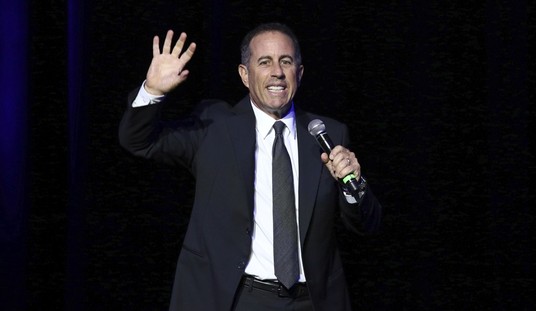The budget season has officially commenced today with CBO’s release of its annual budget and economic outlook. Here are some of the major takeaways from the report:
FY 2012 Budget
The topline figure that the media will focus on is the projected $1.070 trillion budget deficit for FY 2012, down from $1.3 trillion last year. However, as CBO notes several times throughout the report, the reduction in this year’s deficit is predicated on several assumptions.
1) Revenues: The entirety of this year’s deficit reduction comes from higher projected revenues, roughly $220 billion. CBO is forced to score current law, which assumes that the payroll tax cut will expire at the end of February. Another 10-month extension, which is almost a forgone conclusion, would cost over $100 billion. Also, the CBO baseline does not include a likely AMT patch, and extension of many annual “tax extenders,” such as the credit for research and development. It’s very likely that the extensions will wipe out the entire revenue gain from this year over 2011, thereby eliminating the reduction in the deficit.
2) Outlays: CBO is projecting $3.601 trillion in spending, up just $3 billion from last year. Obviously, this projection does not account for a full-year extension of unemployment benefits and doc fix, which could add as much as $70 billion to this year’s spending total.
3) Defense: Outlays for defense will be reduced by another $20 billion.
When these factors are accounted for, it is clear that non-defense discretionary spending will not decrease significantly, while mandatory spending will continue to rise. If you assume the alternative scenario, in which most of the temporary tax and spending measures are extended, the deficit should be about the same as last year; around $1.3 trillion. In other words, there will be slightly more revenue this year, but increased spending as well.
10-Year Budget Frame: 2013-2022:
Over the next 10 years, CBO is projecting $41.179 trillion in revenues and $44.251 trillion in spending, for a deficit of $3.072 trillion. The $3 trillion figure is a real lowball estimate of our projected debt for several reasons. Under that scenario, our annual deficits would dip to $450 billion in just two years, and stay below $400 billion indefinitely. They are assuming rosy pictures of revenue increases, along with the expiration of the Bush tax cuts. Furthermore, CBO notes, that Medicare and Medicaid spending have always increased above expectations, and with Obamacare taking effect, the real cost of healthcare spending will blow out the budget deficits – way beyond $3 trillion.
Another important long-term factor is interest on the debt. At present, interest rates are at historic lows, but they will eventually revert back to their historic norms. That could add several trillion more to the 10-year deficit.
The rosy predictions for revenues and reduced healthcare spending can come to fruition, but not with the current socialist policies as the baseline.
Economic Outlook
CBO is projecting more stagnation for the next few years. For 2012, they are seeing 2% GDP growth and 8.9% unemployment. For 2013, they are projecting a pullback to just 1.1% growth and a spike in unemployment to 9.2%. With these bleak economic figures, it’s hard to envision a scenario in which revenues increase substantially and spending on welfare programs decline (as projected by the report). How can revenues go from 16% of GDP to 20% in just two years, even without the extension of tax cut provisions? Then again, it’s all a moot point. Budget deficits tend to be much higher than the figures projected in CBO reports, in part, due to some of the aforementioned factors.
Debt
Using the unlikely “current policy baseline,” gross federal debt would rise to $21.7 trillion under CBO’s projections. In the more likely “alternative fiscal scenario” gross federal debt rises to $29.4 trillion by 2022, 120% of GDP. The public share of the debt would reach $23.2 trillion, or 94% of GDP. Again, the GDP numbers, under current policies, are overly optimistic.
Social Security
Social Security is, by far, the largest expenditure for the foreseeable future. This year, SS outlays will top $770 billion, accounting for 21.3% of the entire federal budget for FY 2012. From 2013-2022, SS spending will top $10.5 trillion, almost 24% of the budget. On the revenue side, Social Security taxes will only rise $627 billion this year and $8.9 trillion over 10 years. Once again, this projection does not factor in any future payroll tax cuts.
Another noteworthy point is that the Social Security Disability Insurance trust fund will be exhausted in 2016.
Remember that the Social Security Trust Fund is a notional accounting gimmick and is nonexistent. Consequently, every penny of SS benefits that is not covered from the payroll tax will augment our deficit. The real question is why one quarter of the budget is consumed by a program that should be controlled by the individual. Why are we bankrupting our future for a program that offers a worse rate of return than private accounts, which would not cost the government and future generations of Americans a penny?
Medicare
Gross Medicare spending, the second largest domestic spending program, will reach $560 billion this year and $7.8 trillion over 10 years. Net Medicare spending (subtracting $1.2 trillion in offsetting revenues from premium payments from seniors) will be about $6.55 trillion. This year’s outlays would have been higher if not for a shift in certain payments from fiscal year 2012 into fiscal year 2011 because the first scheduled date for payments to health plans in 2012 fell on a weekend. Revenues from the Medicare payroll tax will only bring in roughly $2.8 trillion – and that is including the payroll tax increases under Obamacare. As such, the Medicare hospital insurance trust fund, which is funded by payroll taxes, will be exhausted in 2022.
Now that it is incontrovertibly clear that government has failed at controlling healthcare and retirement costs, is it too much to ask that we allow personal ownership and the free-market to get a bite at the apple?
Liberals always complain that seniors will be left to their own devices under our policies. Judging by the future debt figures, I think we would all rather be on our own, as opposed to shouldering the burden of crushing debt payments.
Cross-posted to The Madison Project














Join the conversation as a VIP Member